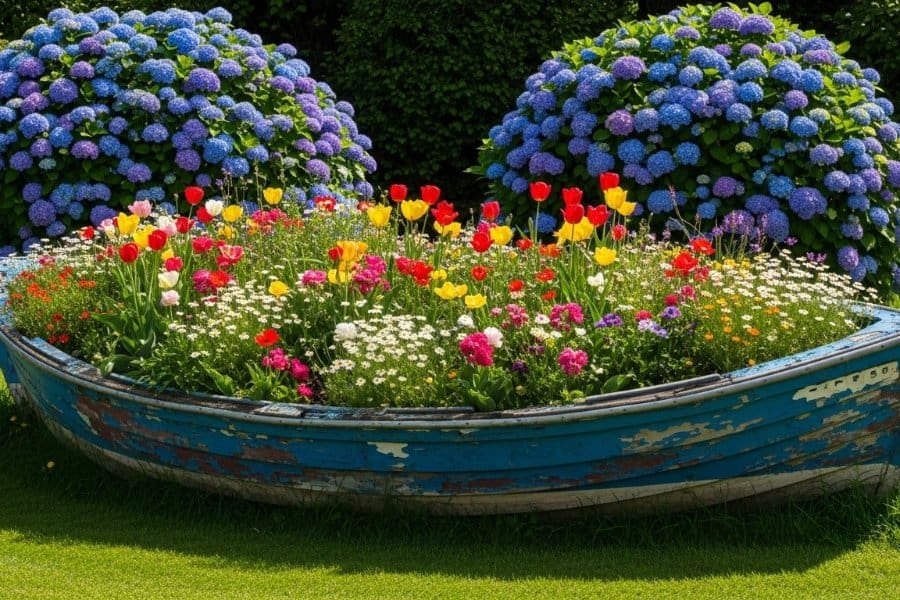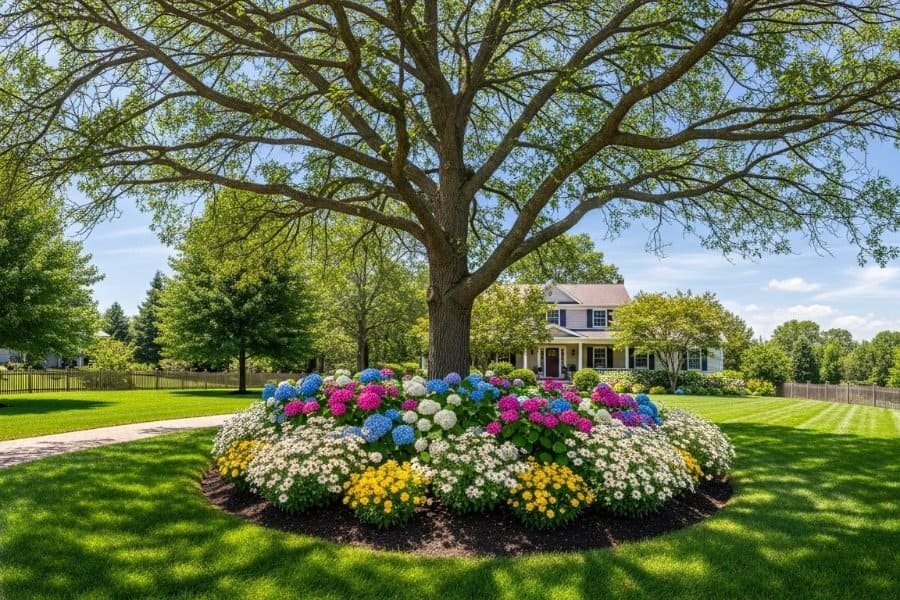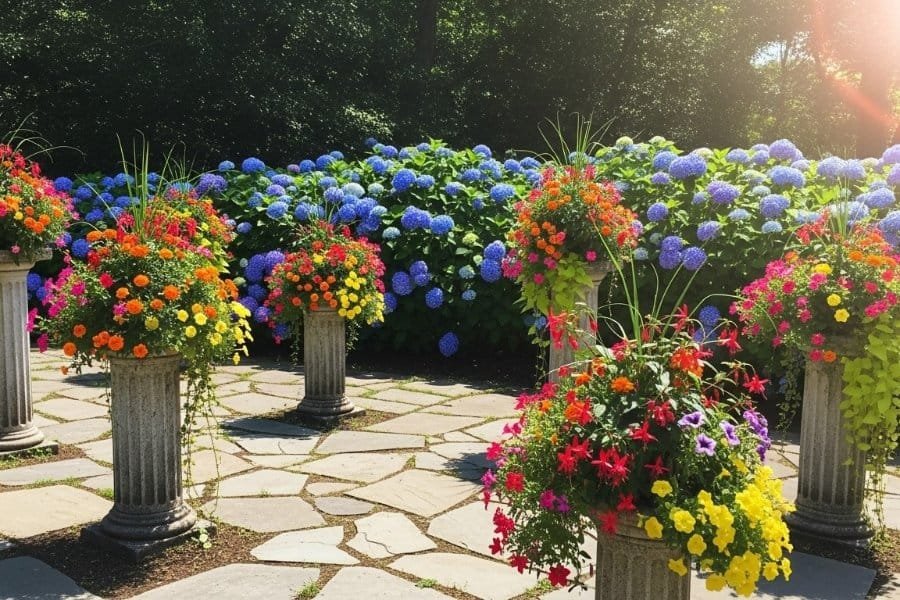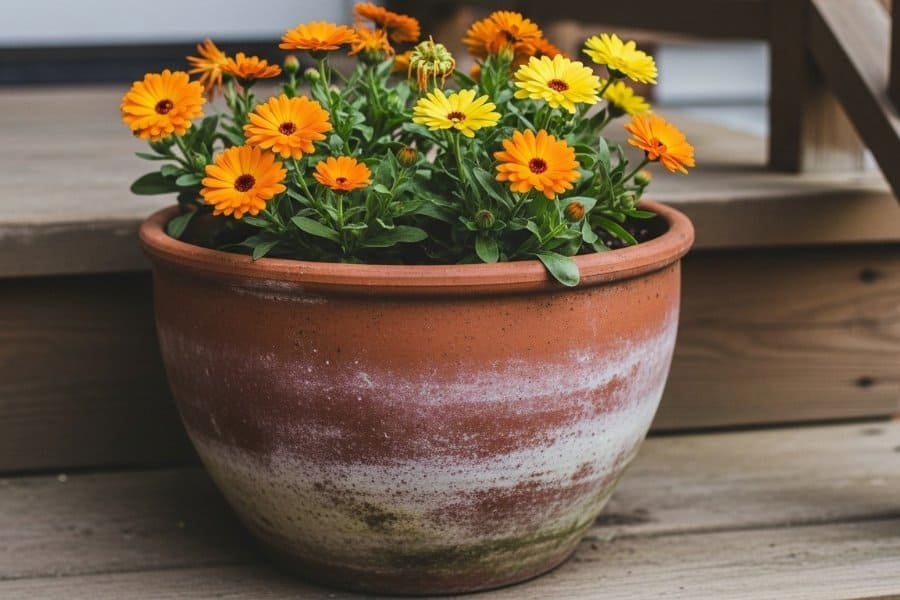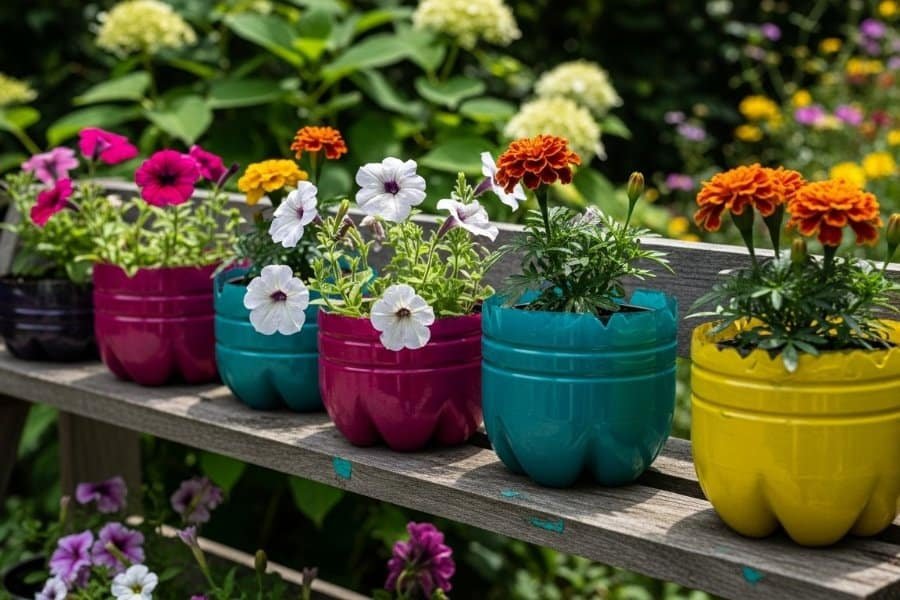Hey
Gardening can feel overwhelming sometimes, right?
Many of us spend too much time on tasks like over-tilling the soil or watering every single day. But with a few smarter methods, like adding mulch and using organic fertilizers, gardening gets so much easier.
Stick around for tips that might save you some time and effort!
Contents
- 1 Simplifying Gardening Practices
- 1.1 Excessive Tilling
- 1.2 Planting by Calendar Dates
- 1.3 High-Maintenance Plants
- 1.4 Overwatering
- 1.5 Over-planting
- 1.6 Focusing on Perfection
- 1.7 Using too many tools
- 1.8 Relying on Synthetic Fertilizers
- 1.9 Planting Exclusively Non-Native Species
- 1.10 Over-analyzing Pests and Diseases
- 1.11 Planting in Poor Soil
- 1.12 Trying to Control Everything
- 2 Conclusion
- 3 FAQs
Simplifying Gardening Practices
Gardening feels easier when you stop doing things that make it harder. I found some habits to drop, and it changed everything.
Excessive Tilling

Tilling hurt my soil more than it helped. It tore up the structure, brought weeds to the surface, and made gardening harder. I stopped using a traditional tiller and tried no-till methods instead.
Now, I layer compost, leaves, and mulch right on top of the soil. This keeps weed seeds buried and encourages worms to move in. Using wood mulch or gathering free leaves from my neighborhood improved my garden beds fast.
My soil stays healthy while saving me time and effort.
Planting by Calendar Dates

I stopped planting just by dates on a calendar. Soil temperature matters more than the date marked in spring. For example, tomatoes thrive when soil is warm, not because it’s May or June.
Cold soil can stunt growth or even kill plants.
Local weather also plays a big part. One year, unexpected frost hit after I planted too early. It ruined many seedlings. Now I check forecasts and test the soil before planting anything from nurseries or garden centers.
This simple shift has saved me time and effort!
High-Maintenance Plants

High-maintenance plants drained my time and garden joy. I quit planting flowers that need too much water, attention, or care. Instead, I now grow hardy perennials like Nepeta and Penstemon.
These plants thrive with little effort. Zinnias and cosmos also bring easy beauty to my space.
I switched to using native and nativar plants for better resilience in local conditions. Erigeron is a favorite choice because it adapts well without fussing over it. Before planting anything new, I always check if the plant might spread invasively.
Focusing on plants suited for where I live has made gardening simpler and more rewarding!
Overwatering

I used to water my plants every day. It felt like the right thing, but it caused problems. Overwatering led to root rot and stressed my plants instead of helping them grow.
Now, I stick to deep watering only a few times a week. This lets roots grow deeper and makes plants stronger. To make things easier, I installed drip irrigation for steady hydration without waste.
I also check soil moisture with my finger instead of relying on schedules. This simple switch saves time and keeps the garden healthy!
Over-planting

Packing too many plants into one space caused trouble for my garden. The crowded beds made it hard for plants to get enough nutrients, water, and sunlight. Pests and diseases spread faster because air couldn’t move freely between the plants.
Giving each plant more room changed everything. Spacing them out reduced watering needs since fewer roots competed for water. It also meant less pruning and easier care as a whole.
Plus, I could walk through my garden without stepping on anything! Healthy plants now grow better with less effort from me.
Focusing on Perfection

Chasing perfection made gardening stressful. I thought every plant had to look flawless. Brown leaves or uneven rows would frustrate me. Letting go of this mindset changed everything.
Healthy plants don’t always appear perfect, and that’s okay.
A little messiness actually helps the garden thrive. Wild areas attract bugs and birds that support growth. Organic gardening doesn’t mean spotless flowerbeds; it welcomes life in all forms.
Now, I enjoy the process instead of worrying about appearances!
Using too many tools

I stopped using too many tools. Extra tools cluttered my shed and wasted time. Now, I stick to a few high-quality ones. A sturdy trowel, pruning shears, and a spade handle most tasks.
Multipurpose tools save space and cut down on storage needs.
Using fewer tools also means less maintenance. No more sharpening twenty things or hunting for missing items. It keeps gardening simple and stress-free!
Relying on Synthetic Fertilizers

Synthetic fertilizers caused more harm than good in my garden. They didn’t improve soil health and often left it weak over time. Switching to compost, aged manure, and organic fertilizers made a big difference.
These build up the soil rather than strip it of nutrients.
Using natural options also helped pests stay under control. Healthy soil grows strong plants, so they fight off issues better. Living mulches kept the ground moist while adding organic matter back into it naturally.
My garden became easier to manage without all those chemicals!
Planting Exclusively Non-Native Species

I stopped planting only non-native species. They need more care, water, and attention. Native plants fit better with local conditions. They thrive with less work from me and improve soil health over time.
Non-native plants can harm the ecosystem too. Some spread fast and push out native ones. That makes it harder for birds or pollinators to find food. Now I choose natives that support wildlife and keep my garden sustainable.
Mulching helps keep them happy while cutting back on weeds and watering needs!
Over-analyzing Pests and Diseases

I stopped panicking over every bug I saw. Many pests won’t cause serious harm, and nature often handles them for me. Healthy plants can survive small issues without help.
Companion planting has saved me a lot of stress. Mixing marigolds with veggies keeps some pests away naturally. I also quit jumping straight to pesticides. Simple fixes like handpicking bugs or spraying soapy water work fine most of the time!
Planting in Poor Soil

Poor soil makes plants struggle. I stopped planting without improving it first. Healthy soil matters more than fancy tools or extra fertilizer. Compost, aged manure, and organic matter work wonders for the dirt.
They enrich it with nutrients and improve drainage.
Skipping this step only leads to weak plants. Investing in soil health saves time later because strong plants need less help. Good preparation means fewer problems down the road!
Trying to Control Everything
I stopped trying to control every detail in my garden. Plants grow on their own timeline, not mine. Some days are too wet or dry; I can’t change that. Forcing a rigid plan only caused stress and wasted time.
Now, I let the garden adapt naturally. If one plant fails, another might thrive nearby. Pests come and go without over-complicated solutions from me. The flexibility feels freeing and things often work out better than expected!
Conclusion
Gardening became easier once I simplified my approach. Small changes made a big difference, like ditching high-maintenance plants and skipping synthetic fertilizers. Now, my garden thrives with less effort.
Focusing on soil health and native plants saved time and energy. It feels great to enjoy gardening without the stress!
FAQs
1. What are some things you quit to make gardening easier?
I stopped over-complicating tasks like digging too deep, using too many tools, and planting hard-to-care-for plants. I also quit trying to control every single weed and worrying about perfection.
2. Did quitting certain habits really help with gardening?
Yes! Letting go of unnecessary steps saved time and energy. It made the process more enjoyable and less stressful.
3. How can simplifying your garden routine make a difference?
Simplifying helps you focus on what matters most, like growing healthy plants without getting stuck on tiny details or exhausting chores.
4. What advice would you give someone who wants an easier gardening experience?
Start small, choose low-maintenance plants, skip fancy tools if they’re not needed, and don’t stress about weeds or minor imperfections in your garden!

